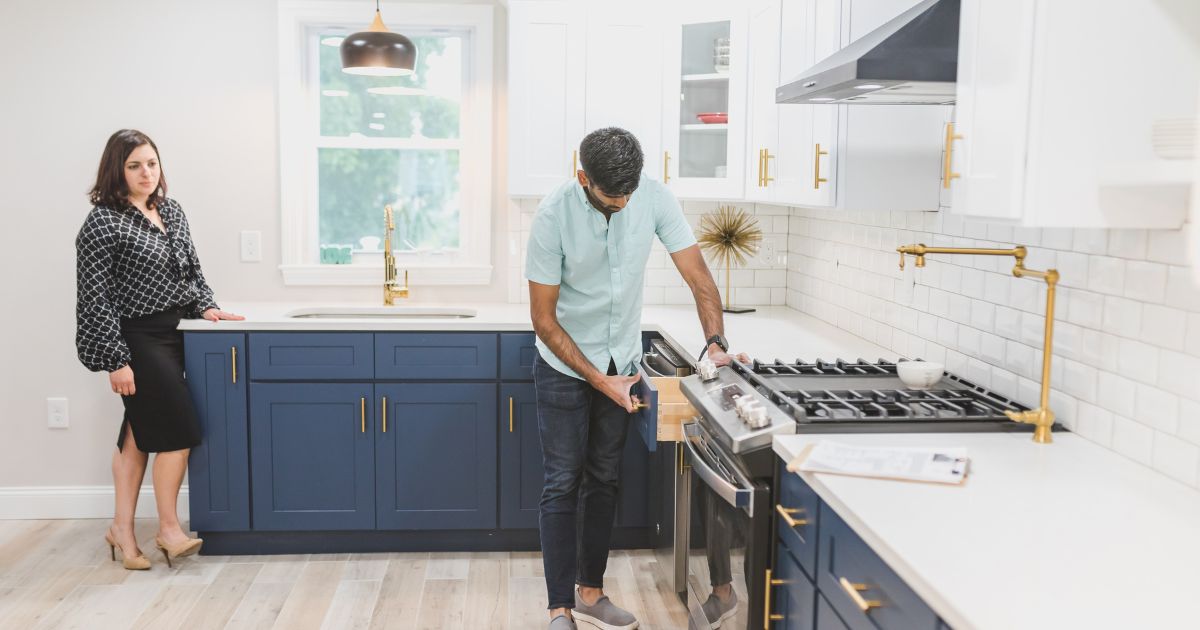Categories
PodcastPublished October 23, 2025
Happy House Hacking Podcast EP 38: Home Inspection Nightmare? 5 Ways to Save Thousands!

Link to full podcast episode here:
Home Inspection Repair Requests: 5 Ways to Save Thousands!
The journey to finding your dream home is filled with excitement and anticipation, but it also involves navigating a series of crucial steps. Among these, the home inspection stands out as an essential moment, offering invaluable insights into the property's condition and unlocking a significant opportunity for buyers: the home inspection repair request. This stage is like your secret weapon in potentially securing significant savings.
At The Schwaegerle Team, we believe in empowering you with the knowledge to navigate every stage of the home buying process with confidence. So, on a recent episode of our Happy House Hacking podcast, we jumped into explaining some effective strategies to help you master the art of the home inspection repair request. Join us as we share our expert tips to help you navigate this crucial "second round" of negotiation and ensure you're making a sound investment within the real estate purchase process.
Understanding Real Estate Negotiation
The journey to homeownership typically begins with the initial offer. This stage, where you present your bid and hopefully reach an agreement with the seller, is what we consider "round one" of real estate negotiating. It sets the stage, but it's not the final act.
Following the acceptance of your offer, the home inspection contingency period begins. This is where "round two" comes in. As Owen Schwaegerle explains, "...which is where you as a buyer get to conduct some more due diligence." It provides a deeper exploration into the property's true condition.
The inspection often reveals details about the property that weren't apparent during initial viewings. These findings can range from minor upkeep issues to significant structural concerns. They pave the way for further discussion and potential seller concessions during the home inspection negotiation. This "second round" is where a savvy buyer can truly leverage the information gathered to their advantage by using effective real estate negotiation tips.
Tip #1 - Prioritize Health, Safety, and Major Systems
When your home inspection report arrives, it might contain a lengthy list of findings. Our first and most crucial tip for crafting your home inspection repair request is to focus on the significant issues.
As Camille Schwaegerle stresses, "...if you're going to be requesting some sort of repair and making a list of items you want the sellers to take care of or address, you’ve got to prioritize health and safety issues and major systems and components." This is a fundamental real estate negotiation tip.
What exactly constitutes health and safety concerns? Think of things like:
- The presence of mold
- Identified electrical hazards
- Issues with the structural integrity of the building (major systems include the roof, plumbing, foundation, and HVAC)
On the other hand, cosmetic issues, such as a need for new paint or outdated fixtures, are generally not appropriate subjects for a home inspection repair request. As Camille states, "This isn't a ‘remake my house’...this is reserved for those big ticket items and those health and safety items."
By focusing on these critical deal-breakers, you not only protect your investment within the real estate purchase process but also strengthen your position during the home inspection negotiation. Understanding your home inspection contingency also plays a role here, as it defines what issues might allow you to withdraw from the deal if not resolved. 
Tip #2 - Repair, Credit, or Price Reduction
When presenting your home inspection repair request, it's essential to understand the various ways you can seek resolution during the home inspection negotiation. There are three primary avenues for achieving seller concessions after inspections:
- Seller Completes the Repairs Before Closing: This involves the seller hiring contractors to fix the identified issues before the property officially changes hands.
- Seller Provides a Closing Cost Credit to the Buyer: In this scenario, the seller agrees to reduce the amount of money you need to bring to the closing table, allowing you to handle the repairs after you own the home.
- Seller Agrees to a Price Reduction: This directly lowers the overall purchase price of the property, giving you more funds available to address the repairs.
Each option has its own set of pros and cons, often depending on the seller's motivation and timeline. For instance, a seller eager to close quickly within the real estate purchase process might prefer a closing cost credit over the hassle and potential delays of arranging repairs themselves.
In many situations, a closing cost credit can be more beneficial to the buyer than a straight price reduction after a home inspection. As Camille explains, "...it's really not gonna save you any money on your mortgage or property taxes." A closing cost credit, however, provides immediate financial relief that can be directly applied to the necessary repairs post-closing.
Understanding these nuances is crucial for effective home inspection negotiation and maximizing seller concessions after inspections. Your home inspection contingency often allows for these different forms of resolution.
Tip #3 - Get Multiple Opinions and Be Detailed
To bolster your home inspection repair request, especially for significant findings, we always advise our clients to obtain multiple bids for the necessary repairs. This provides concrete evidence of the actual cost to rectify the issues identified in the inspection, a vital element in any home inspection negotiation.
Presenting detailed estimates from reputable contractors significantly strengthens your negotiating position. As Owen emphasizes, some of our most successful negotiations have involved clients who are "...very, very detail oriented… they have their spreadsheet and they go through and they add up the total cost of everything."
By providing itemized bids, you demonstrate the legitimacy of your home inspection repair request and the financial impact of the identified issues. This makes a price reduction after a home inspection or other seller concessions more likely.
Oftentimes, it’s wise to express a willingness to concede on less critical items while standing firm on major concerns during the home inspection negotiation. It's also important to remember, as Camille points out, that "...once you provide the listing agent and the seller those bids, they are required to disclose those bids to any future buyer."
This creates a strong incentive for the seller to work with you to resolve the issues within your home inspection contingency, as they will likely face similar or even more significant demands from subsequent buyers. This can potentially lead to a larger price reduction after a home inspection down the line.
Tip #4 - Leverage Market Conditions and Seller Motivation
The dynamics of the local real estate market and the seller's individual circumstances can significantly influence your home inspection negotiation leverage and the potential for seller concessions after an inspection. As Owen explains, "...market conditions as we know really dictate whether or not it's a buyer market [or a] seller market."
In a buyer's market, where there's ample inventory and fewer buyers within the real estate purchase process, you generally have more negotiating power. Sellers may be more inclined to make seller concessions after an inspection to secure a sale and avoid a prolonged listing period. Conversely, in a seller's market with limited inventory, your leverage might be somewhat reduced.
However, even in a seller's market, opportunities for successful home inspection negotiation exist. Properties that have been on the market for an extended period or those that have come back on the market after a previous deal fell through often have more motivated sellers. Understanding the seller's potential urgency and the prevailing market conditions can inform your negotiation strategy and increase the likelihood of your home inspection repair request being accepted.
Tip #5 - Know Your Walk-Away Point
Ultimately, one of the most potent tools in your home inspection negotiation arsenal is your genuine willingness to walk away from the deal. While we don't advocate being unreasonable, being prepared to exercise your home inspection contingency if critical issues aren't addressed demonstrates your seriousness.
As Camille reinforces, "...if you're like, yeah, this is my deal breaker…if I don't get the concessions for this, I'm cancelling and I'm getting my deposit back. I'm moving on…that shows the seller you are serious, and then it puts the ball in the seller's court.” A firm stance in a negotiation can make all the difference. 
Mastering the Art of the Repair Request
Navigating the home inspection repair request process is a critical piece of the real estate purchasing process, offering a valuable opportunity for home inspection negotiations. By prioritizing essential repairs, understanding your options, backing up your claims, leveraging market conditions, and understanding the power of your home inspection contingency, you can significantly influence the outcome.
At The Schwaegerle Team, we are dedicated to empowering our clients with the knowledge and strategies needed to navigate every aspect of the real estate journey successfully. If you're facing a home inspection repair request and need expert guidance on home inspection negotiation, we're here to help. And if you’re looking to learn more about the home buying process, be sure to listen to the rest of our Happy House Hacking podcast!





